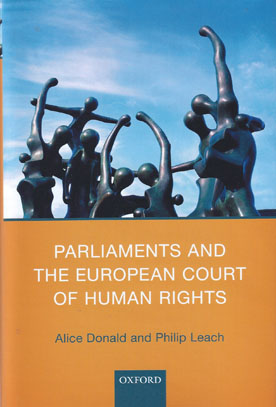
The European system of human rights protection faces institutional and political pressures which threaten its very survival.
These institional pressures stem from the backlog of applications before the European Court of Human Rights, the large number of its judgments that remain unimplemented, and the political pressures that arise from sustained attacks on the Court's legitimacy and authority, notably from politicians and jurists in the United Kingdom.
This book addresses the theme which lies at the heart of these pressures: the role of national parliaments in the implementation of judgments of the Court. It combines theoretical and empirical insights into the role of parliaments in securing domestic compliance with the Court's decisions, and provides detailed investigation of five European states with differing records of human rights compliance and parliamentary mobilisation: Ukraine, Romania, the United Kingdom, Germany, and the Netherlands.
How far are parliaments engaged in implementation, and how far should they be? Do parliaments advance or hinder human rights compliance? Is it ever justifiable for parliaments to defy judgments of the Court? And how significant is the role played by the Parliamentary Assembly of the Council of Europe?
Drawing on the fields of international law, international relations, political science, and political philosophy, the book argues that adverse human rights judgments not only confer obligations on parliamentarians but also create opportunities for them to develop influential interpretations of human rights and enhance their own democratic legitimacy.
It makes an authoritative contribution to debate about the future of the European and other supranational human rights mechanisms and the broader relationship between democracy, human rights, and legitimate authority.